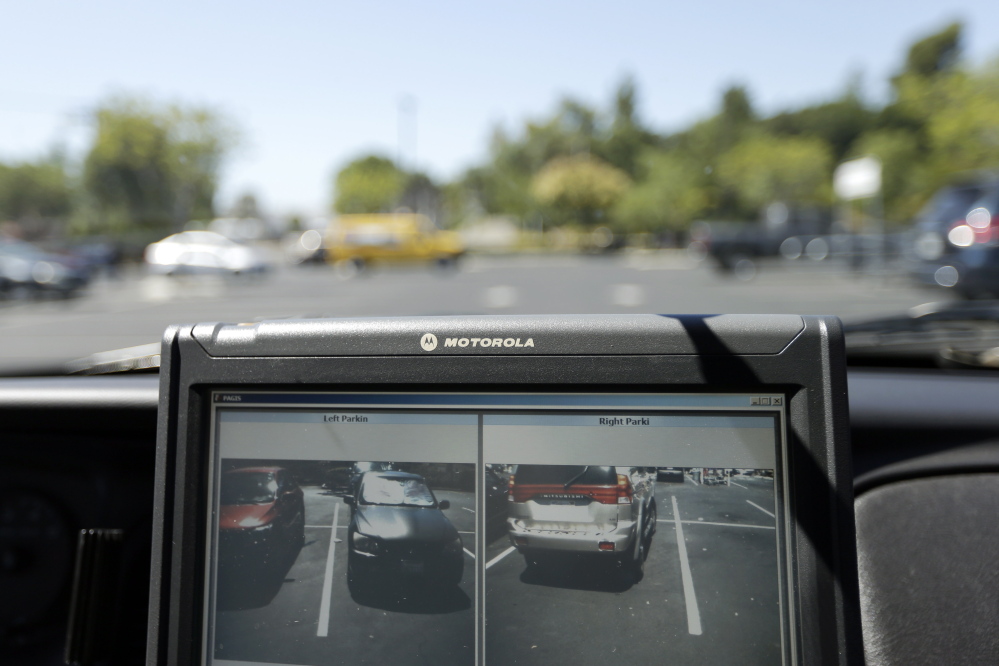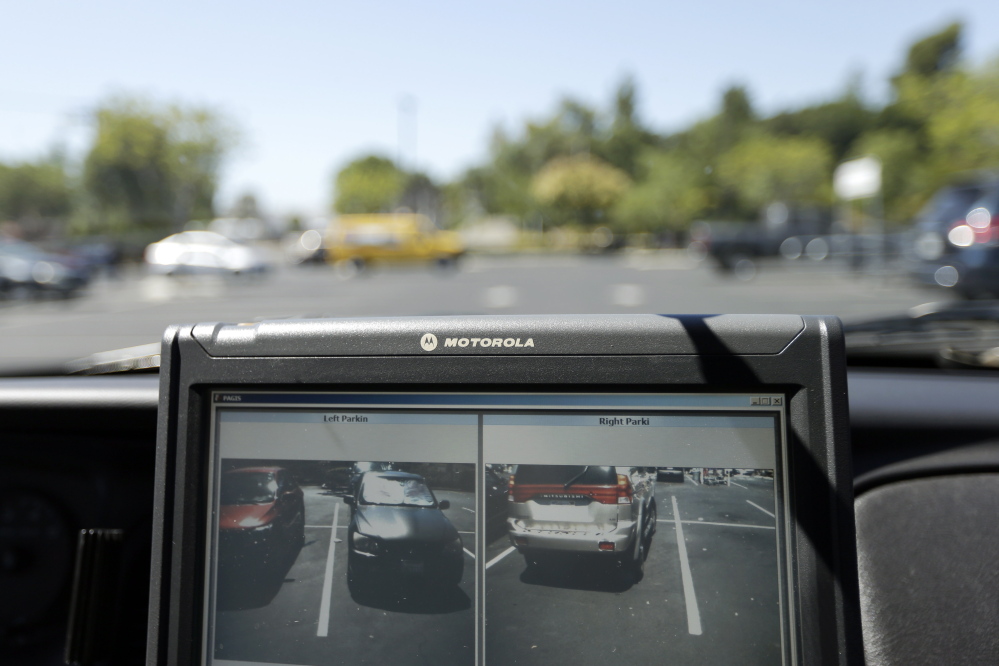AUGUSTA — City councilors on Thursday unanimously approved a proposal from police to seek grant money to buy an automatic license plate reader to scan plates in an effort to target wanted criminals, stolen cars and other things for which police are already on the lookout with their own eyes.
The proposed $49,000 grant from the state Department of Economic and Community Development also would expand “hot spot” actions in which officers focus on high-crime areas, and it would restart a Drug Abuse Resistance Education program in local schools.
Councilors voted unanimously Thursday to seek $49,000 in state Safe Neighborhood Grant Program money for those initiatives.
The Police Department is seeking the Community Development Block Grant money to help reduce illegal drug activity and associated crimes in low-to-moderate-income areas via three approaches.
One would be the purchase, for about $18,000, of an automatic license plate reader. That device, if the grant proposal is successful, would be installed in a police cruiser to read license plates as the officer drives along, a practice that has drawn concern from civil libertarians because of the possibility they could be used to accumulate data and track people’s movements and invade their privacy.
City Manager William Bridgeo said the device would not be used to accumulate data.
“This is not something that creates or maintains any kind of database,” he said. “It effectively does what a police officer would do, running a plate. The only difference is it does it faster. So if folks have privacy concerns, which is certainly legitimate, they should know we’re not purchasing any type of equipment that’d allow us to maintain data on a permanent basis.”
Stan Koski, a lifelong Augusta resident and a former city councilor, asked councilors, “Would this digital camera system determine whether the plate has a current registration tag? Could it determine if the plate was one month overdue, from the registration that goes in the corner?”
Bridgeo said he thinks it will not do so, that it only will recognize the numbers and letters on the plate and the state it is from.
Dan Nichols, associate developer for the city, said the device is essentially a digital camera that records the license plate numbers of vehicles that are oncoming or that police are following, allowing police to determine instantaneously, for example, whether the car is stolen or the owner is wanted for illegal activity.
Bridgeo said the devices are used in other communities in Maine, including South Portland, and have been around nationally for about 10 years.
The officer observing the device would be alerted when it identifies the license plate of someone for whom police looking, or who is the subject of warrants, or who has a history of illegal drug activity, according to Jared Mills, deputy police chief. Mills said two officers would be involved — one driving, the other observing the license plate reader.
Mills said the device would be helpful in that officers receive numerous reports about people wanted by other police agencies and those with arrest warrants. There are so many such reports that it’s impossible for officers to remember them all, let alone compare the license plates of vehicles to those being sought. The new technology would do that automatically.
However, the devices have been controversial when put into use elsewhere.
In response to concerns about privacy, and data from the plates potentially being compromised, Maine passed legislation in 2010 that limits the development of databases using license plate readers and requires collected data to be purged every 21 days if it’s not related to an investigation, according to the American Civil Liberties Union of Maine. The organization still sees the technology as a threat to Fourth Amendment rights, which include the right of people to be secure in their persons, houses, papers and effects from unreasonable search and seizure.
“Maine has some privacy protections on the books, but even the best laws won’t always protect us from leaks of our personal information,” Oamshri Amarasignham, advocacy director of ACLU of Maine, said in an emailed statement Wednesday. “If the city of Augusta is prepared to invest in this technology, it must also be prepared to guarantee appropriate oversight and privacy protections for its citizens.”
Ralph St. Pierre, finance director and assistant city manager, said Maine has strict rules for how the data that the license plate readers collect may be used and stored.
The grant proposal also would seek $10,000 to help cover overtime costs for “hot spot details,” in which police from multiple agencies conduct focused patrols and visits in high-crime areas, passing out fliers, checking in on people in that area who are on probation or have bail conditions, and gather information for investigations to come.
The grant proposal also seeks $21,000 to restart a Drug Abuse Resistance Education, or DARE, program in a partnership between police and Augusta schools. Of that $21,000, $17,000 would be used to train the city’s school resource officer, community resource officer and four other officers to teach the DARE program in local schools; $2,000 would cover their hourly wages to teach the course; and $2,000 would buy equipment and supplies.
Mills acknowledged the DARE program was controversial, and its effectiveness was questioned, before it was revamped in 2010. But he said statistics show that since those changes, it is effective and now touches on not only illegal drugs but also issues including bullying and prescription drug abuse.
The city now has nothing in schools meant to reduce illegal drug activity and associated crimes directly.
The state grant program would not require the city to match the state money with local money.
Keith Edwards — 621-5647
Twitter: @kedwardskj
Copy the Story LinkSend questions/comments to the editors.





Success. Please wait for the page to reload. If the page does not reload within 5 seconds, please refresh the page.
Enter your email and password to access comments.
Hi, to comment on stories you must . This profile is in addition to your subscription and website login.
Already have a commenting profile? .
Invalid username/password.
Please check your email to confirm and complete your registration.
Only subscribers are eligible to post comments. Please subscribe or login first for digital access. Here’s why.
Use the form below to reset your password. When you've submitted your account email, we will send an email with a reset code.